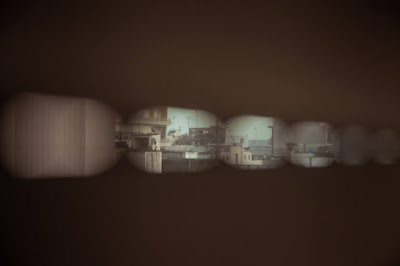Subtitled "Or the British Agent" this prototype spy novel is based on the real-life experiences of the author during the First World War when he worked for British Intelligence, mostly based in Switzerland. Much of his work involved living in hotels while collating reports; there is very little shooting and sex. Instead, there are character studies of the inhabitants of the shady world of espionage, from the flamboyant but ruthless Hairless Mexican to a traitor with an in-depth knowledge of botany, himself betrayed by his love for his wife. These are real people rather than the insubstantial silhouettes that populate most spy stories. They can feel fear. They can be manipulated by their need for money to sustain their lifestyles. They have flaws (Ashenden himself doesn't seem to be flawed but he is more of an observer than a participant). This collection of stories is distinguished by the enormous empathy between the narrator and the often pathetic characters struggling in the webs woven by the puppet-masters, to mix a metaphor.
Beautifully written. The 64th best crime book of all time according to the Mystery Writers of America.
One of the less sympathetic characters makes racist comments.
Selected quotes:
- “If you do well you'll get no thanks and if you get into trouble you'll get no help.” (Ch 1: R)
- “A scudding rain, just turning into sleet. swept the deck in angry gusts, like a nagging woman who cannot leave a subject alone.” (Ch 2: A Domiciliary Visit)
- “It was as unsatisfactory as those modern novels that give you a number of unrelated episodes and expect you by piecing them together to construct in your mind a connected narrative.” (Ch 2: A Domiciliary Visit)
- “Nothing is so foolish as to ascribe profundity to what on the surface is merely in it; it is a pitfall into which many an ingenuous reviewer has fallen headlong.” (Ch 2: A Domiciliary Visit)
- “Confidence, that is all you need. if you never fear a rebuff you will never have one.” (Ch 4: The Hairless Mexican) The secret of chatting up women successfully according to the eponymous hero of this chapter.
- “I am a patriot and I love my country. ... “We could no longer put up with the misrule from which we were suffering. All the lucrative posts were given to other people, we were being made to pay taxes as though we were tradesmen.” (Ch 5: The Dark Woman) A delightfully ironic version of patriotism.
- “Ashenden was in the habit of asserting that he was never bored. it was one of his notions that only such persons were as had no resources in themselves and it was but the stupid that depended on the outside world for their amusement.” (Ch 7: A Trip to Paris)
- “It must be confessed that for the small fry like himself to be a member of the secret service was not as adventurous an affair as the public thought.” (Ch 7: A Trip to Paris)
- “She seemed to have a sneaking fondness for naval officers. I couldn't exactly blame her for that, they are attractive.” (Ch 7: A Trip to Paris)
- “The shy and eager lad, so impatient for life ( which he saw not in the present of his adolescence but only in the future of his manhood).” (Ch 10: The Traitor)
- “The small grey-green eyes ... were quick and shifty, but when the mind behind them was seized by an unexpected notion they were suddenly still.” (Ch 10: The Traitor)
- “Ashenden admired goodness, but he was not outraged by wickedness ... When he liked people it was not because he was blind to their faults.” (Ch 10: The Traitor)
- “Mr Harrington was a talker. He talked as though it were a natural function of the human being, automatically, as men breathe or digest their food; he talked not because he had something to say, but because he could not help himself.” (Ch 14: A Chance Acquaintance)
- “Any fool can waste money, but when you waste time you waste what is priceless.” (Ch 14: A Chance Acquaintance)
- “They went out into the street. There was hardly anybody to be seen. They walked along. The trams were not running and the silence in the great city was uncanny. The shops were closed. It was quite startling when a motor car dashed by at breakneck speed. The people they passed looked frightened and downcast. When they had to go through a main thoroughfare they hastened their steps. A lot of people were there and they stood about irresolutely as though they did not know what to do next. Reservists in their shabby grey were walking down the middle of the roadway in little bunches. They did not speak. They looked like sheep looking for their shepherd.” (Ch 16: Mr Harrington’s Washing) A wonderful description of a city in the middle of a revolution; desolation in the heart of civilization. Notice the short sentences, the absolute lack of melodrama, the simplicity. It is impossible to read without knowing that this is an eye-witness description.
W Somerset Maugham also wrote (reviewed in this blog):
- Of Human Bondage
- The Moon and Sixpence
- Cakes and Ale
December 2024, 304 pages
First published in March 1928 by Heinemann
My copy is the April 1928 reprint of that edition.

No comments:
Post a Comment